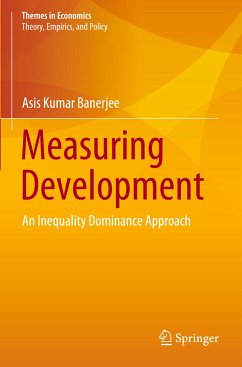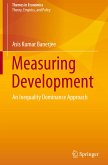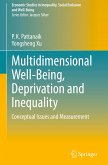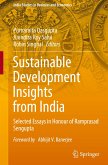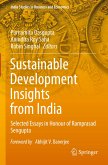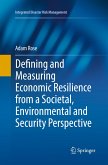This book discusses how to measure the level of development of an economy, particularly, the task of ranking economies in terms of their development. In this context, development is defined as an increase in people's level of wellbeing. The book emphasises that wellbeing is a multidimensional concept, and that it is important to ask how equitably the fruits of development are distributed, and as such it focuses on multidimensional, inequality-sensitive development ranking. Rather than using various specific development indices, which would lead to different development rankings for a country, the book proposes a dominance approach, which formulates conditions under which two economies can be ranked unambiguously, making it valid for all reasonable development indices. With the help of illustrative examples using real-world data, it demonstrates that such unambiguous rankings are possible, and that the proposed approach can be used to complement traditional approaches. An invaluable resource for researchers working in the field of development, the book will also appeal to practitioners engaged in measuring development.
An excerpt from the book's Foreword:"[This book] is a comprehensive and valuable contribution to the literature on the measurement of inequality and the use of such measurement in the assessment of social welfare. I believe that it will be of much interest to researchers working on measures of inequality and social welfare as well as advanced graduate students who are looking for a solid introduction to this important area of normative economics."
- Prof. Prasanta K. Pattanaik, University of California, Riverside, California, U.S.A.
An excerpt from the book's Foreword:"[This book] is a comprehensive and valuable contribution to the literature on the measurement of inequality and the use of such measurement in the assessment of social welfare. I believe that it will be of much interest to researchers working on measures of inequality and social welfare as well as advanced graduate students who are looking for a solid introduction to this important area of normative economics."
- Prof. Prasanta K. Pattanaik, University of California, Riverside, California, U.S.A.
"Asis Banerjee's book is one that anyone working in the area should, in the least, have an opinion of. The importance of taking inequality seriously in development measures is rightfully championed by the author, and the difficultly of achieving robust rankings highlights the potential for much future work." (Aaron Nicholas, Economic Record, Vol. 97 (317), June, 2021)
"The book is a notable addition to an area of normative economics that has assumed renewed prominence in the context of rising dissatisfaction with the vaunted gains of globalization." (Soumyen Sikdar, Journal of Quantitative Economics, Vol. 18, 2020)
"The book is a notable addition to an area of normative economics that has assumed renewed prominence in the context of rising dissatisfaction with the vaunted gains of globalization." (Soumyen Sikdar, Journal of Quantitative Economics, Vol. 18, 2020)

